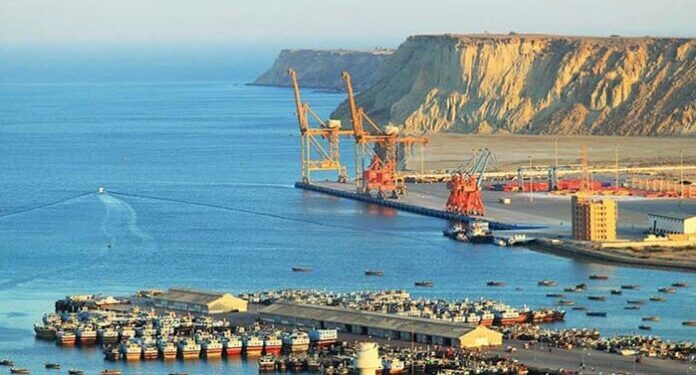Islamabad, Feb 14: The federal government has constituted a 13-member committee to oversee the implementation of the Gwadar Port operationalization plan, signaling a renewed push to activate the strategic port.
A notification issued by the Cabinet Division confirmed that the federal cabinet has approved the formation of the committee, which will be chaired by Federal Minister for Planning Ahsan Iqbal. The committee comprises key stakeholders, including the Ministers of Defense, Maritime Affairs, Commerce, and Communications, along with senior officials from the Ministries of Foreign Affairs, Railways, and Commerce. Additionally, representatives from the National Logistics Cell (NLC), National Highway Authority (NHA), and the Federal Board of Revenue (FBR) are included.
READ MORE: Pakistan’s Total Liquid Foreign Reserves Stand at $15.86 Billion
The committee has been tasked with identifying and addressing major obstacles hindering the full-scale operation of Gwadar Port. Key concerns include inadequate internal connectivity, a lack of financial incentives, and security challenges that have affected the port’s potential as a regional trade hub. The committee will develop actionable recommendations to resolve these issues and ensure a smooth operational transition.
A major initiative under the plan is the organization of an international conference in Islamabad. This event will aim to enhance global awareness of Gwadar Port’s strategic advantages and promote a comprehensive marketing strategy to attract international investors and stakeholders.
In addition to resolving technical and logistical issues, the committee will focus on diplomatic outreach to generate economic and trade interest from Central Asian republics and other global markets. The objective is to position Gwadar Port as a key player in regional trade and connectivity.
The Ministry of Maritime Affairs will provide secretarial support to the committee, which is required to submit its report to the federal cabinet within 30 days. The initiative marks a crucial step in fast-tracking Gwadar’s operationalization and reinforcing its role in Pakistan’s economic future.
